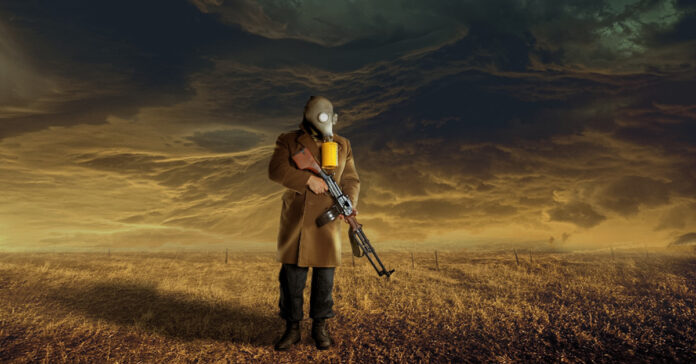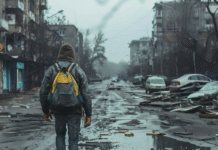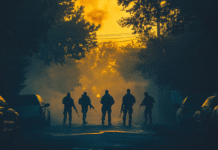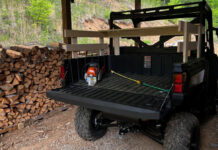If you pay attention to the news, you probably know:
- The stock market had a bad week last week, capped off by a bad joblessness report and rising unemployment. Depending on what articles you read, this will either lead to a hard landing (a recession) or the Fed will increase its planned cuts to 50 basis points. A recession means tough economic times in the near future. Inflation means tougher economic times a few years down the road.
- Iran is about to go to war with Israel. Some headlines would have you believe Iran will attack Monday, possibly before you’ve even read this piece, which I am writing late Sunday night. Israel killed a senior Hamas figure while he was in Iran for the new Iranian president’s inauguration. From Iran’s perspective, this is like Israel thumbing its nose at them while screaming insults. It is both embarrassing and degrading. Despite diplomatic efforts, most of the world expects this to erupt into war and the U.S. will be dragged into it.
- Russia is making strong forward progress on the ground in Ukraine as the Ukrainian defense fails. You will see stories about people evacuating before the Russians get there, about a lack of manpower, and Russian progress in the Donbas. You will also read that Ukraine is having success in attacking Russian air bases and fuel storage depots using advanced weapons from the U.S. and its allies. I even saw a report that they used a drone to sink a Russian submarine. This hurts Russia, but it doesn’t stop their advances. It’s questionable whether these attacks, or the presence of F16s in Ukraine, will convince Russia to go to peace talks or lead to a greater escalation.
- Finally, if you live in the southeast, you no doubt know about the hurricane that is expected to hit Florida on Monday, cross over it, and dump as much as 30 inches of rain on some parts of the Georgia and South Carolina later this week. That’s going to cause some serious flooding, which often causes more damage than high winds and storm surge.
What To Do
As a prepper, what should you do when faced with news like this? Unless you live in the hurricane’s path or a war zone, ignore it and keep on prepping. Unless faced with a specific threat, and a flood is a specific threat, just keep doing what you are doing and follow your prepping plan.
In today’s world, there will always be bad news. There will always be riots, wars, and natural disasters. If you live in a war zone, a city targeted by protestors and rioters, or a location prone to natural disasters, then follow my advice and move. Otherwise, don’t let these news stories distract you from your prepping.
Back to Basics
Focus on the basics, which I call the Big Three
Shelter: Have a safe and secure retreat, a place in which you live or can go when the SHTF. Ideally, it will have a source of water and heat that can operate if the grid goes down.
Food: Have a food storage program that starts with your prepper pantry, includes some long-term storage foods, and then has specialty items.
Water: While you can store water, most of us don’t have large tanks. That means you need a source of water, a way to transport it to your shelter, and a method to render it safe for consumption.
After these basics, focus on the next three:
Self Defense: You need to have a way to protect yourself. This might include hiding, retreating, or keeping a low profile, but I also recommend having guns and the ability to use them as a last resort.
First Aid and Medical: Stock up on extra medications and supplies necessary to treat every day illnesses and injuries.
Communications: You should have a way to get news from the world, to communicate with each other, and to communicate with allies in the area.
And More
There are dozens, maybe even hundreds of other things you should do—like keeping some spare cash on hand, not letting your car’s gas tank drop below half full, and carrying a get-home bag when you are out and about—but focus on the first six. When you have a good foundation, then you can focus on specialized preps.
By specialized preps, I mean preparations that are particular to one specific threat. For example, if your greatest fear is another anthrax attack, you can stockpile Cipro, which is used to treat weaponized anthrax, as well as other infections. But stockpiling Cipro won’t help in a recession, a war in Europe, or in a supply chain crisis. Having a storehouse of food will be more useful. Focus your preps on things that you need in most disasters.
You and I can’t stop the war in Ukraine or the Middle East. In other words, don’t let the headline news of the day distract you or scare you unless it is aimed at you. For example, people catching bird flu in Colorado might make the news, but if you live in Oklahoma or somewhere else in Tornado Alley, you should worry more about tornados than bird flu. If you or a loved one aren’t on a navy ship in the Middle East or a tank battalion in Europe, those wars are unlikely to have an immediate impact on your life. A recession, on the other hand, will affect most of us, and inflation is inescapable.
Should you Relax?
We live in a complex world with a multitude of threats. Monitor them, but don’t let them get you down. Most of them will never be realized or won’t be as dire as the prognosticators expect
I don’t suggest you relax, but I wouldn’t let the headlines keep you up at night. Instead of worrying, maintain a state of watchful wariness. Be prepared, and you should have less to worry about. Have a plan, and you be able to rest easily because you will know what to do when the SHTF.
Remember, this is why we prep.







